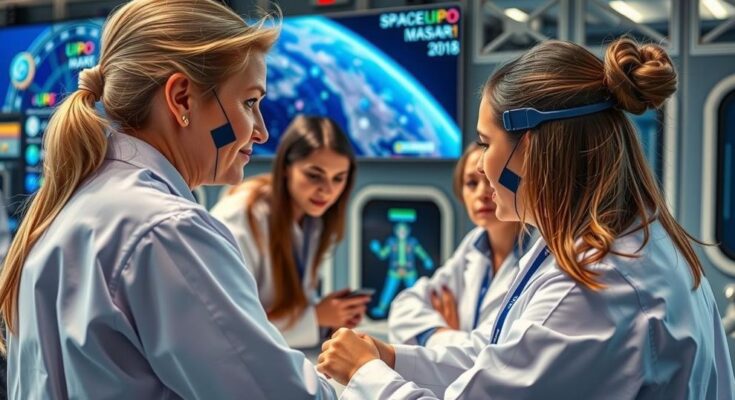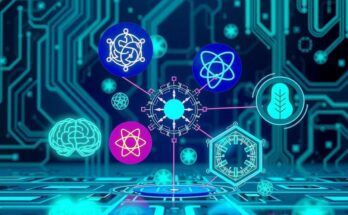The 12th annual ISSRDC highlighted the influential roles of women leaders in STEM, celebrating their contributions to research and innovation in low Earth orbit. Key figures like NASA’s Megan McArthur and policy expert Ezinne Uzo-Okoro led discussions on advancements in scientific research, emphasizing the importance of ongoing studies in microgravity. The conference underscored the significance of diversity in science, heralding a bright future for women in space.
This summer, women in STEM (science, technology, engineering, and mathematics) truly shone at the 12th annual International Space Station Research and Development Conference (ISSRDC). This unique gathering, dedicated to the contributions of the ISS in advancing science and technology, united leaders from various sectors such as commercial, governmental, and academic communities to fuel innovation in low Earth orbit (LEO). On Women’s Equality Day, the ISS National Laboratory honored the impactful roles that women played as speakers, emcees, and panelists during the conference. Megan McArthur, a NASA astronaut and chief science officer at Space Center Houston, celebrated her recent ISS mission. In her opening speech, she highlighted the importance of being a part of the research community in space, stating how she collaborated with scientists on the ground. McArthur expressed gratitude for the opportunity to contribute to groundbreaking research during her spaceflight. Ezinne Uzo-Okoro, from the White House Office of Science and Technology Policy, began Day 1 by moderating a panel focused on innovative cancer research in microgravity. She emphasized the need to continue studying cancer and acknowledged its significance as a leading cause of death in the U.S. Uzo-Okoro advocated for advancements that might make cancer prevention and care more effective through space-based research. Donna Roberts, the Deputy Chief Scientist at the ISS National Laboratory, moderated a discussion on the effects of microgravity on the heart. Drawing on her experiences as a radiology professor and NASA investigator, she stressed the value of repeat experiments in space to deepen our understanding. Roberts noted that this iterative research could pave the way for advancements in STEM fields. Susan Margulies, of the NSF Engineering Directorate, highlighted the ISS’s role in fundamental engineering research. In her keynote, she remarked on how the ISS allows scientists to examine phenomena without the constraints of gravity for prolonged periods, unlocking vast potential for scientific discovery that earthly conditions cannot replicate. Robyn Gatens, director of the ISS at NASA, participated in a panel discussing the future of research in low Earth orbit. She asserted that medical research aboard the ISS directly impacts patient lives, implying that ongoing research might lead to significant breakthroughs such as cancer treatments, a hopeful message for the future of healthcare. Adele Luta, who spoke at the Women’s Networking Breakfast, drew parallels between space exploration and oceanic exploration. Her advice to think in terms of “and” rather than “or” encourages creative thinking in problem-solving and innovation. Luta stressed that embracing multiple tools and perspectives could lead to groundbreaking discoveries. On Day 3, the conference highlighted the next generation of scientists with the announcement of the Genes in Space competition winner. Isabel Jiang, a high school student, was recognized for her project exploring how latent viruses react in space. Her journey continues the legacy of innovation, promising a bright sky full of opportunities for young scientists.
The International Space Station Research and Development Conference (ISSRDC) is a pivotal gathering focusing exclusively on how the ISS is advancing science and fostering a sustainable market in low Earth orbit (LEO). Since its inception, the conference has highlighted the contributions of various sectors, particularly emphasizing diversity and gender equality in STEM fields. This year’s conference coincided with Women’s Equality Day, underscoring the importance of female representation in scientific exploration and research.
The ISSRDC spotlighted the incredible contributions of women in STEM, showcasing their leadership and groundbreaking research. With voices like McArthur, Uzo-Okoro, and Roberts leading the charge, the future of space exploration and medical research in microgravity appears promising. As innovative projects unfold and inspire new scientists, the narrative of women shaping the field continues to gain momentum, lighting the way for the next generation of pioneers in space.
Original Source: issnationallab.org



